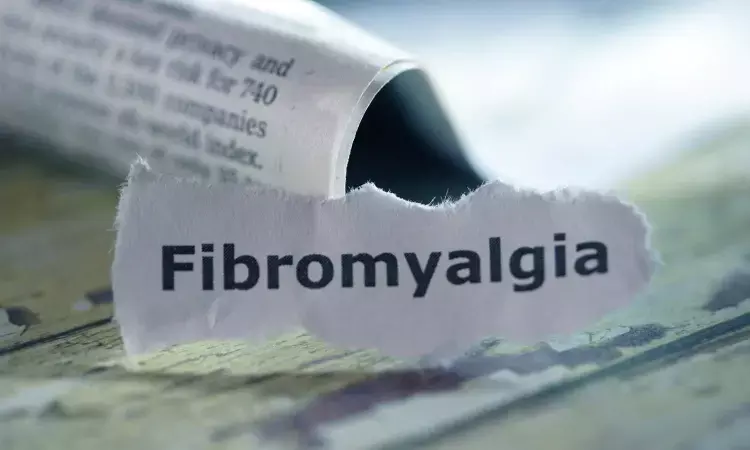- Home
- Medical news & Guidelines
- Anesthesiology
- Cardiology and CTVS
- Critical Care
- Dentistry
- Dermatology
- Diabetes and Endocrinology
- ENT
- Gastroenterology
- Medicine
- Nephrology
- Neurology
- Obstretics-Gynaecology
- Oncology
- Ophthalmology
- Orthopaedics
- Pediatrics-Neonatology
- Psychiatry
- Pulmonology
- Radiology
- Surgery
- Urology
- Laboratory Medicine
- Diet
- Nursing
- Paramedical
- Physiotherapy
- Health news
- Fact Check
- Bone Health Fact Check
- Brain Health Fact Check
- Cancer Related Fact Check
- Child Care Fact Check
- Dental and oral health fact check
- Diabetes and metabolic health fact check
- Diet and Nutrition Fact Check
- Eye and ENT Care Fact Check
- Fitness fact check
- Gut health fact check
- Heart health fact check
- Kidney health fact check
- Medical education fact check
- Men's health fact check
- Respiratory fact check
- Skin and hair care fact check
- Vaccine and Immunization fact check
- Women's health fact check
- AYUSH
- State News
- Andaman and Nicobar Islands
- Andhra Pradesh
- Arunachal Pradesh
- Assam
- Bihar
- Chandigarh
- Chattisgarh
- Dadra and Nagar Haveli
- Daman and Diu
- Delhi
- Goa
- Gujarat
- Haryana
- Himachal Pradesh
- Jammu & Kashmir
- Jharkhand
- Karnataka
- Kerala
- Ladakh
- Lakshadweep
- Madhya Pradesh
- Maharashtra
- Manipur
- Meghalaya
- Mizoram
- Nagaland
- Odisha
- Puducherry
- Punjab
- Rajasthan
- Sikkim
- Tamil Nadu
- Telangana
- Tripura
- Uttar Pradesh
- Uttrakhand
- West Bengal
- Medical Education
- Industry
Repetitive transcranial magnetic stimulation reduces pain intensity: Study

A new study published in the British Journal of Anaesthesia revealed that add-on M1-repetitive transcranial magnetic stimulation (rTMS) decreased pain intensity for up to 8 weeks in women with fibromyalgia.
Peripheral alterations in fibromyalgia only affect a percentage of individuals and are unrelated to symptoms. Rather, brain abnormalities that result in an increase in sensory processing are linked to fibromyalgia. There have been reports of clinical correlations of central sensitization in fibromyalgia, and they are thought to be related to the severity of symptoms.
Reduced tone of descending pain modulatory pathways and reduced motor cortex GABA-dependent cortical inhibition have been linked to fibromyalgia. This study was set to evaluate the effectiveness of repeated transcranial magnetic stimulation (rTMS) as an adjuvant treatment for fibromyalgia by Valquíria Silva and colleagues.
In Brazil, France, and Japan, women aged ≥18 years who had fibromyalgia and were not responding to the best available therapy were recruited. They were randomly assigned to receive 10 Hz motor cortex (M1) rTMS, 3000 pulses per day, or sham stimulation. This consisted of 10 induction sessions spread over 2 weeks, weekly maintenance for 6 weeks, and extended maintenance every 2 weeks for 8 weeks.
At week 8, the main result was a pain reduction of at least 50% when compared to the baseline. Pain interference, mood, overall perception of change, and Fibromyalgia Impact Questionnaire (FIQ) ratings at weeks 8 and 16 were secondary objectives.
A total of 101 women (mean age 48 [range 25-83] years) were randomly assigned to either the active (n = 52) or sham (n = 49) arms. When comparing the active group to the sham, Bayesian analysis showed a 99.4% chance of ≥50% pain reduction at week 8, with a number required to treat of 4.54.
The active group saw a greater relative decrease in pain than the sham group, according to frequentist analysis. By week 16, the chance of a decrease in FIQ score was 79.1%, but this probability had dropped to 34.2%. The intervention seems to be safe.
Overall, this is the first multicenter trial to demonstrate that M1-rTMS has a reasonably large effect size and an apparent favorable safety profile and that treatment increases the likelihood of significant pain reduction in women with fibromyalgia for up to 8 weeks.
Source:
Silva, V. A., Baptista, A. F., Fonseca, A. S., Carneiro, A. M., Brunoni, A. R., Carrilho, P. E. M., Lins, C. C., Kubota, G. T., Fernandes, A. M. B. L., Lapa, J. D. S., Dos Santos, L. M., Sasso, I., Monte-Silva, K., Poindessous-Jazat, F., Mori, N., Miki, K., Baltar, A., Tanaka, C., Teixeira, M. J., … Ciampi de Andrade, D. (2025). Motor cortex repetitive transcranial magnetic stimulation in fibromyalgia: a multicentre randomised controlled trial. British Journal of Anaesthesia. https://doi.org/10.1016/j.bja.2024.12.045
Neuroscience Masters graduate
Jacinthlyn Sylvia, a Neuroscience Master's graduate from Chennai has worked extensively in deciphering the neurobiology of cognition and motor control in aging. She also has spread-out exposure to Neurosurgery from her Bachelor’s. She is currently involved in active Neuro-Oncology research. She is an upcoming neuroscientist with a fiery passion for writing. Her news cover at Medical Dialogues feature recent discoveries and updates from the healthcare and biomedical research fields. She can be reached at editorial@medicaldialogues.in
Dr Kamal Kant Kohli-MBBS, DTCD- a chest specialist with more than 30 years of practice and a flair for writing clinical articles, Dr Kamal Kant Kohli joined Medical Dialogues as a Chief Editor of Medical News. Besides writing articles, as an editor, he proofreads and verifies all the medical content published on Medical Dialogues including those coming from journals, studies,medical conferences,guidelines etc. Email: drkohli@medicaldialogues.in. Contact no. 011-43720751


